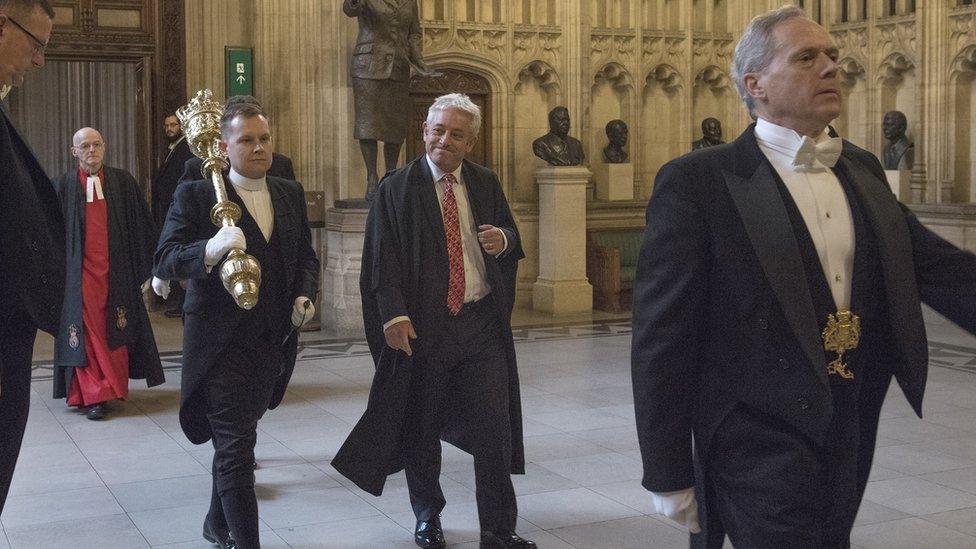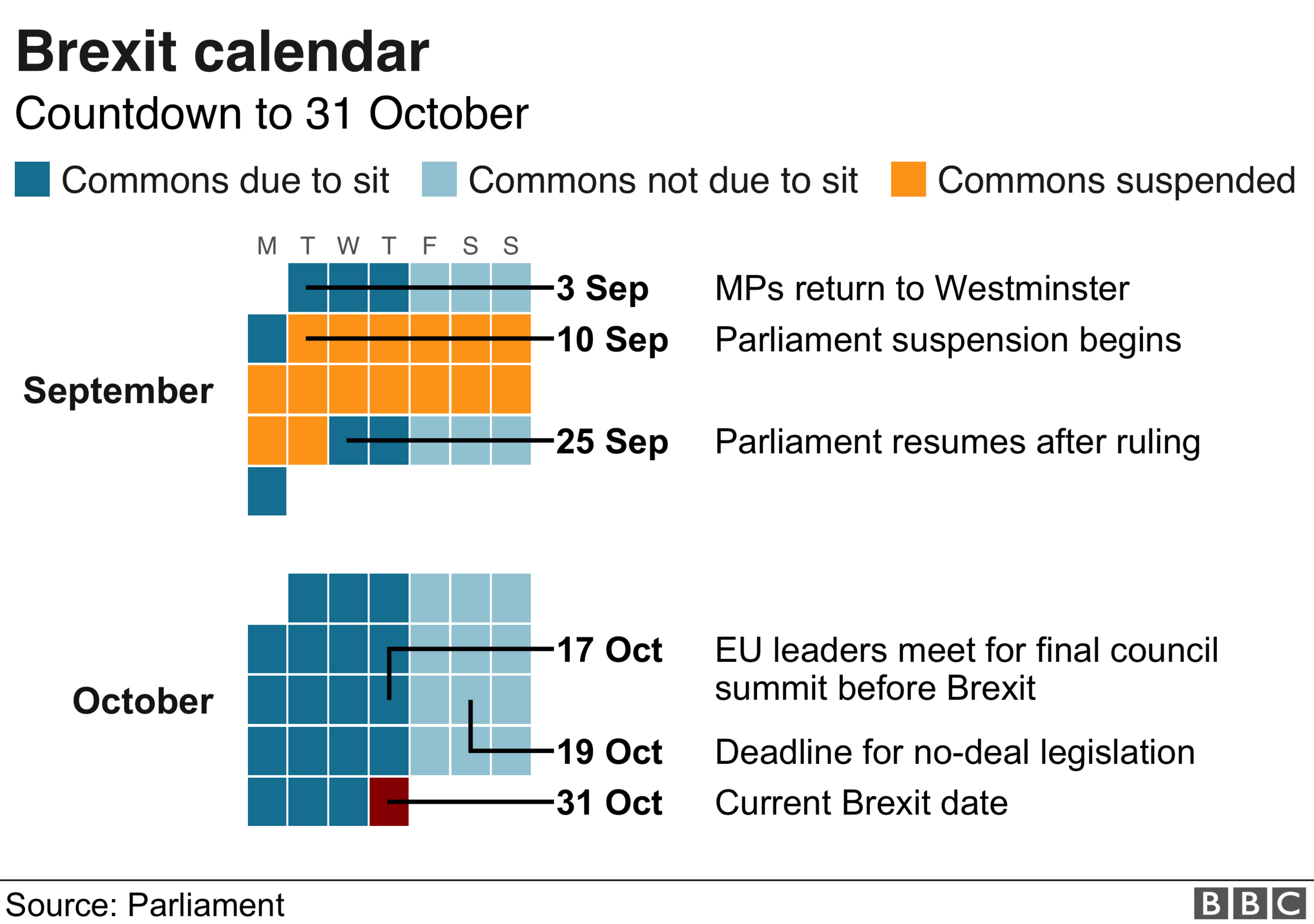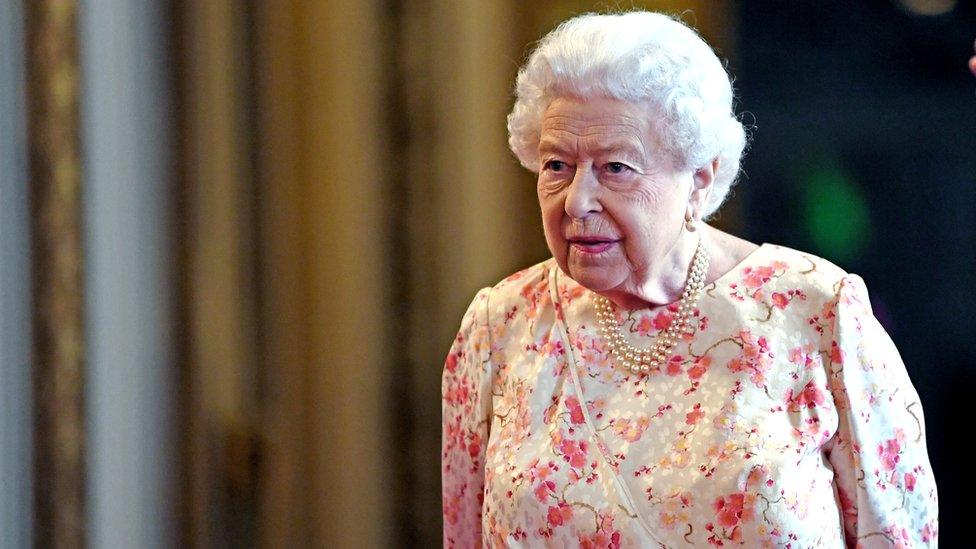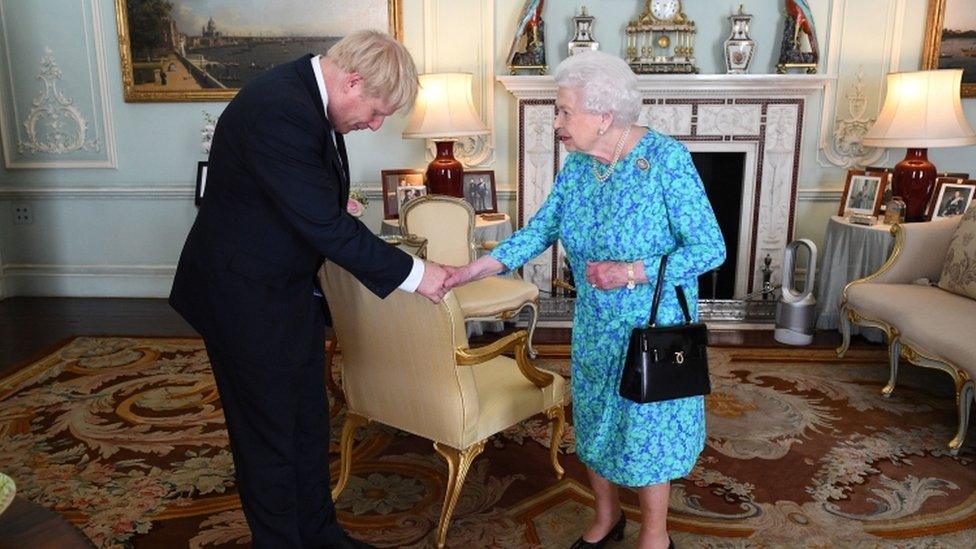Parliament returns: Your questions answered
- Published

MPs have returned to Parliament a day after the Supreme Court ruled that the decision to suspend sittings for five weeks was unlawful.
On Tuesday we answered your questions on the ruling and now we are looking at queries received from readers about what happens now that the House of Commons is back in session.
Why does the PM insist the UK will leave the EU on 31 October given that a no-deal is illegal? - Michael
While Parliament has passed a law that tries to avoid a no-deal Brexit on 31 October, it can't make such an outcome illegal.
That's because a no-deal Brexit is the legal default outcome - unless a deal is passed or Brexit is cancelled altogether.
Under the law passed by MPs, Mr Johnson is required to request a three-month Brexit delay by 19 October. The only exceptions are if MPs vote for no deal or pass a deal beforehand.
However, Prime Minister Boris Johnson also insists the UK will leave the EU on 31 October "do or die".
So, assuming the government is required to seek an extension, it's currently unclear how Mr Johnson will meet his Brexit pledge while complying with the law at the same time.
With Parliament back in session, will MPs sit through the Conservative Party conference? - Luke
MPs normally vote to have a recess during the traditional autumn party conference period. When Parliament is in recess, no sittings take place.
But because the government decided to prorogue Parliament, no such recess vote took place.
Now that Parliament has resumed, sittings will be scheduled to take place on the final three days of the Conservative Party conference which runs from 29 September to 2 October.
That means Conservative MPs will have to choose between attending the Manchester conference and sitting in Westminster.
In an attempt avoid this, the government asked MPs to agree to a short recess. However, the government lost by 17 votes.
Could the EU volunteer a Brexit extension to the UK? - Greg
Yes. In theory, the EU could offer a Brexit extension without the UK having to request one first, as long as the other 27 member countries agreed.
However, any offer from the EU wouldn't automatically change the UK's exit date.
That's because Parliament also has to amend the legislation which sets the day of the UK's departure in stone. This is what happened when the original exit day was moved from 29 March - after MPs debated and voted on the issue., external
Can opposition parties now form an alternative government? - Simon
It is possible a change of government could happen without an election.
That's because the prime minister is ultimately the person who commands the "confidence" of the House of Commons.
So if another individual, such as Jeremy Corbyn, can show they have the support of a majority of MPs, it is possible that an alternative government could form.
This could be achieved through a formal motion of no confidence. If the opposition propose such a vote, the government would be expected to make time for it as soon as practically possible.
If a simple majority of MPs vote in favour, then the government falls. Opposition parties then have 14 days to try to form an alternative government. If this fails to happen, or the government fails to regain the confidence of the Commons, then a general election is automatically triggered.

Can the Queen now question the 'advice' given to her by the PM?
In recent decades the Queen's role with regards to parliamentary matters has been more symbolic and ceremonial than anything else.
There has been an unwritten rule for many years that nothing would ever be done to put her in a position where she could be accused of having a political role.

The prorogation of Parliament happens after the prime minister advises the Queen to do it and in reality, she would have had no choice other than to grant Mr Johnson's request to do this.
After the Scottish Court of Session case into the suspension, a Palace source told the BBC: "The Queen acts and acted on the advice of her ministers."
What happens if the PM resigns shortly before 11pm on 31 October and doesn't nominate a successor?
When a prime minister stands down they go to Buckingham Palace to offer the Queen their resignation. If it is not obvious who might succeed them, the outgoing PM would usually recommend someone who can command the "confidence" of the House of Commons.
That's because the Queen must have a prime minister at all times.
When a party in government has a majority, the successor is usually obvious. The position will go to their successor as party leader.
But there are no firm rules about what would happen under a minority government if a prime minister refuses to nominate a successor or was incapacitated in some way.
Under such a scenario, it's likely that the Queen would have to seek other advice, possibly from the cabinet. But she may have to choose the appointee herself, according to Catherine Haddon from the Institute of Government.
In such a scenario the Queen would probably have two options - someone recommended by the existing cabinet, or opting for the Leader of the Opposition, whose role, historically, has been to act as a government-in-waiting in case of such circumstances, says Ms Haddon.
Can anyone take a case to the Supreme Court or does it have to be someone wealthy? - Ann
The Supreme Court is the final court of appeal for all UK civil cases, and for criminal cases from England, Wales and Northern Ireland.
It does not consider cases brought by individuals, only ones from lower courts when a relevant order has been made.
The Supreme Court concentrates on cases of the greatest public and constitutional importance.
- Published24 September 2019
